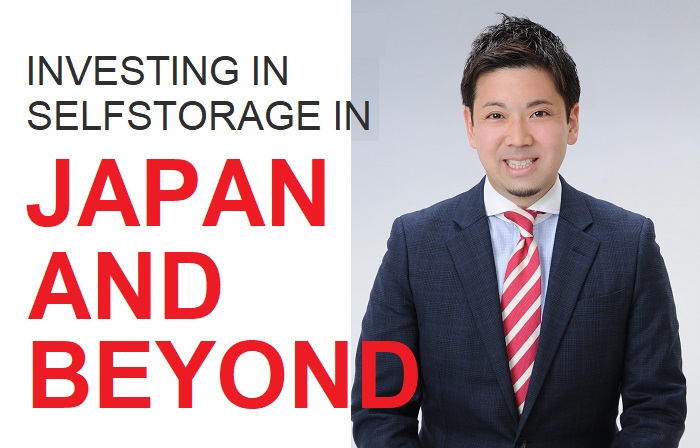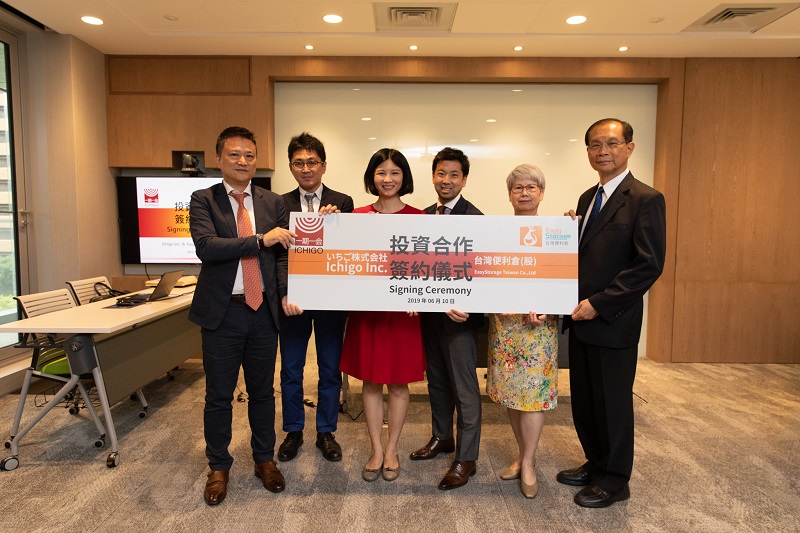Dan Morisaku, Senior Manager, Ichigo Inc, shares his experience of moving into the self storage market

For institutional investors, self-storage as an asset class can seem like a bit of tease, offering the promise of becoming the next big thing. But while self storage offers hope, it also requires much patience. We are two years deep (or shallow, depending on your perspective) into investing in self-storage, starting in Japan and now expanding beyond. I want to share our experiences so far.
Ichigo is a Japanese sustainable infrastructure company investing chiefly in real estate and renewable energy. We entered the self storage market in July 2017 via our acquisition of Centro Corp and its subsidiary, Storage PLUS. This subsidiary was originally started by a Japanese trading house, Mitsui & Co, which wanted to introduce the US self storage model into the Japanese market.
The calculation behind Ichigo’s decision to enter self-storage was twofold. First, the demographic changes taking place in Japan seemed very favourable to self-storage’s growth. While Japan’s population has been in a modest decline for a decade, major metropolitan areas like Tokyo have continued to grow. The result has been smaller living spaces, and budding demand for someplace outside the home for storing things. At the same time, a side effect of Japan’s aging demographics has been that as the post-war baby-boom generation passes from the scene, many of their children are finding themselves inheriting family fortunes and belongings. This has also resulted in increased storage needs among working-age groups with relative purchasing power.
The second calculation behind our move into self-storage was the fact that the industry itself is still in an early growth stage, with few rivals and less supply than potential demand. In a nascent industry like this, we saw a chance to seize a dominant position in the market by scaling up quickly through rapid investment.
Fast-forward to today, we feel upbeat - though not complacent - about the growth we have achieved at Storage PLUS. Despite a robust domestic real estate market, which has made it challenging to find good properties at a reasonable price, Storage PLUS has doubled its number of storage facilities, from 17 to 34. Our portfolio consists of both owned and leased locations, with both approaches having advantages depending on our strategy at each store location. The strong property market has also forced us to get creative in finding new locations to open storage facilities.
Storage PLUS was inventive even before we bought it, but under Ichigo, it has become even more innovative. One way we have done this is by working with new types of real estate partners. We have been able to open new facilities in very attractive, high-demand areas in a relatively short time, and lower cost, by sharing buildings with other users: condos, post offices, convenience stores, retail complexes, to name a few. This has saved us the time and effort of trying to source a dedicated, single use storage facility.
The success of this approach has led us to take the idea a step further, and start experimenting with new, lifestyle-oriented facilities that involve innovative combinations, for example combining self-storage with laundromats and cafés. So far in distinct residential areas (in Tokyo, Kanagawa, and Hokkaido) we have opened four facilities which have laundromats and cafés right next to our self-storage spaces. The idea is that you can do your laundry, enjoy a coffee while you do so, and then put out-of-season clothing and bedding into storage after washing them. The heavier traffic generated by such multiuse spaces, we hope will further raise consumer awareness of self-storage, and eventually help us fill our units even faster.
 As our efforts to grow have started to take off at home, we have been keen to study markets internationally as well. While we have done well in Japan, a longer-term perspective compels us to look for new opportunities to expand abroad. We are aware that there are successful, growing self-storage businesses in the Asia-Pacific and beyond. We have visited facilities in places such as Singapore, Hong Kong, Taipei, New York, and Florida to learn from and network with major operators there. We also have become an active SSAA (Self Storage Association Asia) member and ILS sponsor to make ourselves better known outside Japan.
As our efforts to grow have started to take off at home, we have been keen to study markets internationally as well. While we have done well in Japan, a longer-term perspective compels us to look for new opportunities to expand abroad. We are aware that there are successful, growing self-storage businesses in the Asia-Pacific and beyond. We have visited facilities in places such as Singapore, Hong Kong, Taipei, New York, and Florida to learn from and network with major operators there. We also have become an active SSAA (Self Storage Association Asia) member and ILS sponsor to make ourselves better known outside Japan.
The consumer market in Japan is large and maturing, but the self-storage penetration ratio is still low compared to other developed markets. This convinces us that there is still significant growth potential to tap at home. Our trips abroad have also shown us that other markets have innovated and grown in ways that are different from Japan. Why not draw some lessons and adopt business ideas from these markets, by paying closer attention to developments outside Japan? Tangentially, one of the great perks of belonging to an association like the SSAA is that I can visit self-storage operators and investors virtually anywhere in the world, thanks to the collegial industry atmosphere shared worldwide and the great stewardship of Luigi La Tona, the founding Executive Director of the SSAA. Also, as an institutional investor, and a listed company serving our shareholders, the concept of scalability is very important to Ichigo. We have also set a profitability target of achieving an ROE of 15% or more. As a result, we have focussed on investing in small to mid-sized facilities, with an average size of 100 or more units. While we continue to work to grow into a dominant player in the domestic market, we see opportunities to scale up even further via international expansion.
We took our first step in expanding outside Japan by investing in a Taiwanese brand, Easy Storage Taiwan (EST). Taiwan’s proximity to Japan, and the similarity of its markets and consumer preferences, has helped us understand the real estate opportunities in Taiwan. This is particularly true in Taipei, where we also see a growing population density bringing greater awareness and demand for self-storage services, just as has happened in Tokyo.
We like our new partner, EST. We admire the founder’s entrepreneurial passion and vigour in pursuing business growth, as well as her talent in building a very capable team around her. We were also fortunate that EST’s founding shareholders wanted to exit their investment just as EST was entering a new stage of growth. The timing was a perfect match for Ichigo, which had an appetite to invest outside Japan. SSAA’s matching program between investors and operators was also instrumental in bringing our two sides together. We closed the deal to become a principal shareholder in June 2019. With the addition of EST, our total portfolio in Japan and Taiwan now totals 41 facilities with approximately 5,000 units occupying 10,600 square meters. We are delighted to grow in partnership with EST and will work to contribute to each other’s success in ever greater endeavours going forward.
As I stated at the beginning, investing in self-storage offers hope but also requires patience. With our two years of experience in this industry, this observation seems truer than ever. As we continue to pursue our investment mandate both at home and abroad, we peruse each opportunity with prudence, but are ready to move dynamically when the chance arises. With growing uncertainty about the macro-economy amid trade wars and political turmoil, it is important for Ichigo to place itself in a vantage point to seize the most strategic deals and collaborative opportunities. We also support the stable growth of Hokkaido, the industry and the creation of a more transparent regulatory environment. We are excited about where we have come with our investment portfolio, and about the prospects of working with the SSAA to grow further together in Asia, and perhaps beyond.
Article reproduced by kind permission of the Self Storage Association Asia.
Photos: Dan Morisaku, The signing ceremony, Ichigo & EST.